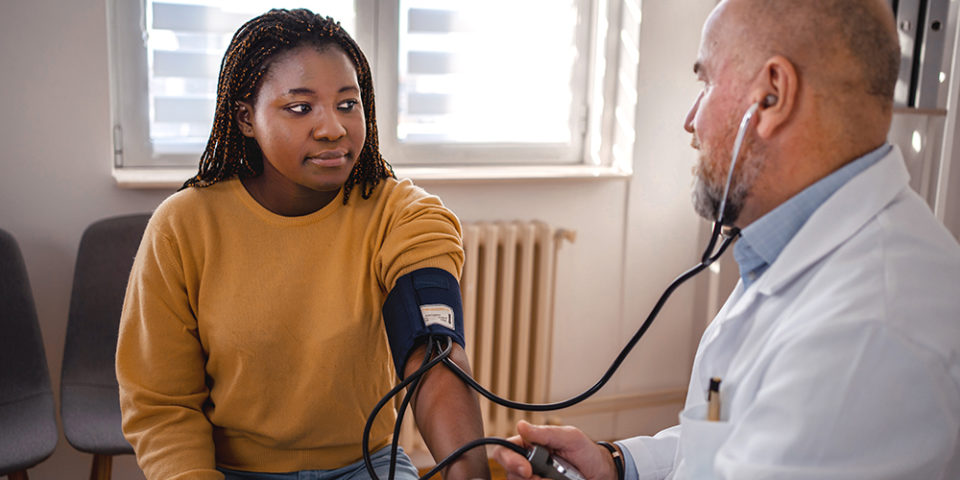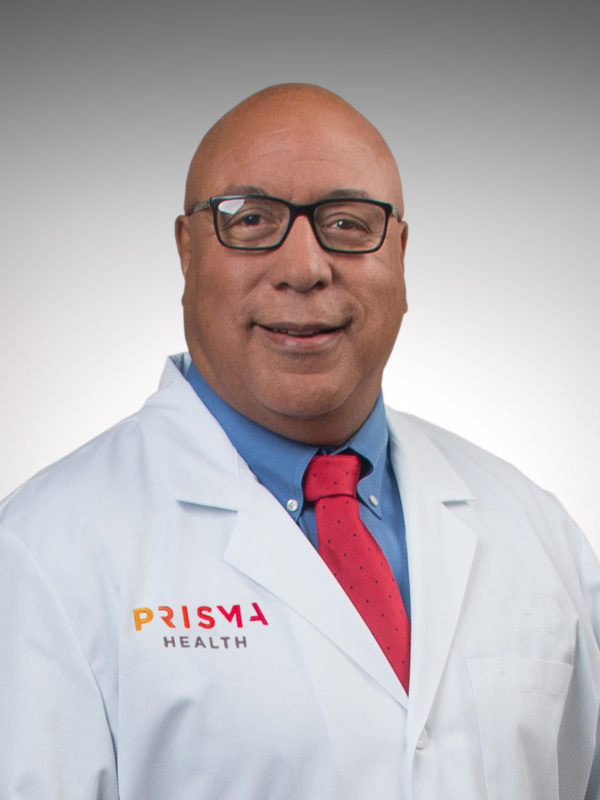Why African Americans are more at risk for heart disease
Heart disease is the number one killer of Americans, especially African Americans. Cardiologist Roosevelt Gilliam, MD, explained why African Americans are more at risk for heart disease and what you can do to prevent it.
African Americans and heart disease
According to the U.S. Department of Health and Human Services Office of Minority Health, African Americans are 30% more likely to die from heart disease than non-Hispanic whites. African American adults also are 40% more likely to have high blood pressure and are less likely than non-Hispanic whites to have their blood pressure under control.
Why?
Dr. Gilliam said there are several theories, including location and environment, which can lead to these problems:
- Limited access to healthcare. “In rural areas, people tend to not see doctors as frequently. A young man could go from age 18 to 35 and never see a doctor. The next thing they know their kidneys have stopped working because their blood pressure has been so incredibly high,” he said.
- Lack of regular exercise. This could be due to a lack of access to exercise facilities, but also lifestyle. “Most of our work is done while we’re sitting. The more we work, the less we exercise, and the less we exercise, the bigger our body mass becomes,” Dr. Gilliam said.
- Limited access to healthy food. Living in an area with high-calorie, unhealthy food, or “food deserts” can make it harder to maintain good nutrition habits.
“One of the critical things we’re doing in medicine is trying to see how to break through these barriers,” Dr. Gilliam said.
How do you know if you might have a heart issue?
Dr. Gilliam said there are symptoms everyone should be aware of, but how people interpret those symptoms can be different. For example, what one person considers painful might be considered merely a little uncomfortable by others.
He said to look at it this way. Are there things you’ve done regularly and easily that you suddenly find you can’t do? This might be a reason to get checked for a cardiac issue.
Examples of symptoms that would prompt a visit include:
- Being short of breath.
- Discomfort in your chest.
- Pain going up in your neck or radiating down your arm.
“It doesn’t mean that you have heart disease. It means we need to be concerned enough to look,” Dr. Gilliam said.
Another warning sign is a sudden increase in weight. If you find your weight is going up three pounds a day for several days in a row and suddenly you’ve gained 15 pounds of weight, you might be retaining water, which is a sign of congestive heart failure.
How can you prevent heart disease?
“The first thing I always tell people is to start with the big things you can immediately do,” Dr. Gilliam said. These include the following:
- If you smoke, quit. This should be your top priority.
- Know your genetics. If people in your family had heart attacks in their 40s or early 50s, you need to be aware that this is a possibility for you as well.
- Know your numbers. Have your cholesterol and blood pressure checked regularly.
- Exercise regularly. If you combine a lack of activity with obesity, it’s a big problem. “Studies have found that many African American women are overweight as they approach age 50,” Dr. Gilliam said. “They have high blood pressure and diabetes because of this weight alone. And if you add them together, the weight, the diabetes, and hypertension, we get what we call metabolic syndrome. This is a syndrome of this collection of symptoms that leads to people having early heart attacks and strokes. But it can be prevented.”
- Manage chronic conditions. If you have diabetes or hypertension, it needs to be well controlled. “Your sugar level should be the same as people who don’t have diabetes,” Dr. Gilliam explained. Monitor your sugar and blood pressure numbers at home. “At-home monitoring is helpful because your numbers will typically be higher when we take them in the office, and you don’t want to take more medication than you need.”
- Get regular checkups from your doctor. Discuss any changes so they can be dealt with before they turn into a problem. Be honest and ask questions, such as if there are medicines you can stop taking.
The bottom line
While African Americans are more at risk for heart disease, there are steps you can take to minimize your risk and live a longer, healthier life. We all need to take responsibility for our own health. This includes when we’re young.
“If we take care of ourselves when we’re younger, we are often in much better shape and do not require interventions when we’re older,” Dr. Gilliam said. “You only have one body and you’re going to have to use it all your life. You need to be aware that things you do will add up.”
Find a cardiologist you trust
We make it easier to get the care your heart needs, with cardiologists located near you.
Learn More

